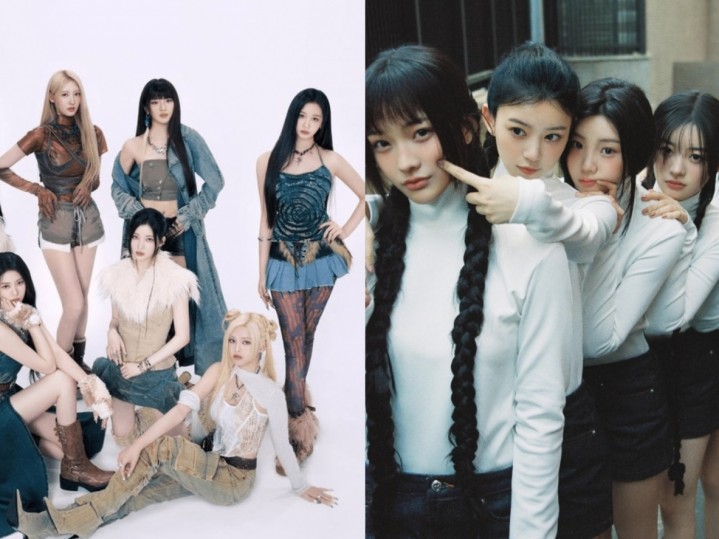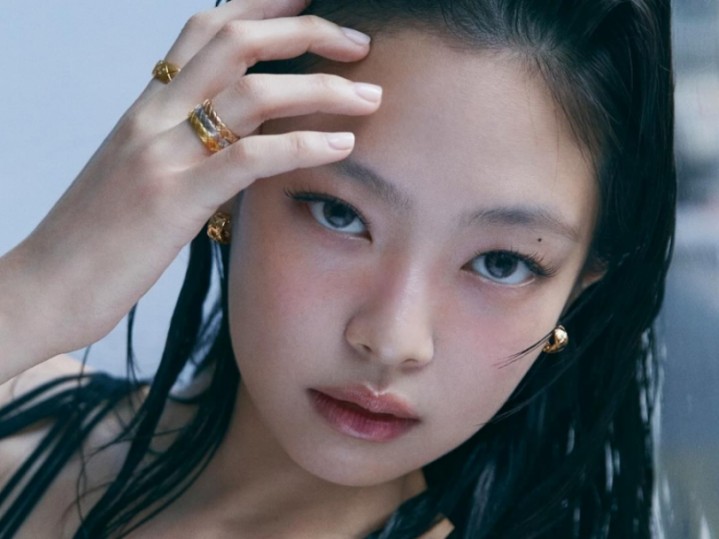An Interview With The Skating Lesson's Jenny Kirk And Dave Lease, Part 2: The IJS, USFS And Future Plans
In part two of the interview with The Skating Lesson's Jenny Kirk and Dave Lease, the pair delved into their opinions on the International Judging System (IJS), US Figure Skating (USFS) as well as their future plans for The Skating Lesson.
This season you guys started a few partnerships like with Brad Griffies. How did those come about and is that something you're looking to develop in the future?
JK: We approached different people that we feel their brands were something that we liked. We were such fans of Brad's work at Nationals this year, so we decided to approach him, see if he'd be interested in advertising. We want one blade company and one boot company to partner with for the rest of TSL, to really promote and have that relationship. That's the next thing that's on the horizon for us. We try to find different things that we think our audience will enjoy, and I think Brad's work is one of those things.
DL: We had meetings with sponsors, blade companies, ad guys very early on in TSL. I think about three months in, four months in. We knew our vision very early on of what we wanted to do. People, are always asking us, "What is your vision? What do you ultimately want to do?" I think it intimidated people. But we had meetings with media companies even early on, and that's something that's always gone on. We know where we want to take TSL. We want to do interviews, we want to do our content, and also bring the experience of training and skating and life of an athlete off-ice. Early on, we did Olympian 360 on TSL where we talked to a sports psychologist, nutritionist etc. We want to do more of that. We have plans to visit training centers over the summer and really bring you the skater training experience.
JK: The great thing about the web which Icenetwork really hasn't…they're starting to but they really haven't jumped on with social media, is it's immediate. People are open books. We go on these skaters' Instagrams and we know so much more about them. I think so many people's favorite part of Nationals is the 90-second fluff piece that we get on whoever the skater of the moment is. We live for those fluff pieces and what Dave and I really want to do with TSL is to have those fluff pieces, all the time. We want to go to these training centers throughout the season and put together a fluff piece with people like Jillian and Bob, and see, what is it like to do yoga with Jillian? What is it like to hang out with Bob and his step-daughter? We can feel there's video content to back up these skaters' Instagrams. That's where Dave and I want to go with this website.
We want to make it so that the skaters can come on, get interviews with past champions, watch interviews with sports psychologists, nutritionists, to really help their skating. But also for fans, to really feel like they know these personalities, which we got in the 90's when Kristi [Yamaguchi] was on TV every weekend. Unfortunately, today's stars, we don't feel as attached to them as we could to their personalities because we're just not exposed to them enough, and with the way that everything is connected today, there's no reason for that. We want to make it so you have that accessibility and connection to the personalities.
DL: Because we have our distinct personalities and people get to know them, the guests come on to the show, sometimes excited, sometimes ready to talk about things a little more amped up if they want to defend something, if they want to throw shade.
JK: We welcome it!
DL: And kind of spark off of each other. If there's one smart thing we've done, it's really to reveal these personalities so that people can get to know [them]. If we don't talk about how Meagan Duhamel talks in the kiss and cry all the time about their points, that wouldn't be something that every fan is now talking about. We shaped the conversation a bit and that is something we can continue to do. We hear it so many times. We can bring the personalities so that when you see Nicole Rajičová, that you know she actually lives on the Upper West Side and skated with all these people early on. Then you're watching the third-to-last group at Worlds and it becomes more interesting to you. Or if you know the history of Elene Gedevanishvili or all of these different skaters—
JK: You feel a connection. And skaters want that because that's going to sell tickets. When you have those connections with Scott Hamilton, you want to go to "Stars on Ice" as a little girl to watch him, and we want to bring that connection again for the skaters.
DL: I just read this book "Skating on the Air" that one of the TSL commenters sent me. Back in the 90's, people came from a very authentic place when they covered skating. They wanted to show people what compulsory figures were and they had the budget to do it. They respected the sport, they came from a good place and they wanted to bring that sport to the people. That's how they came up with the "up close and personals." That developed in skating that's now done in every sport. Over time as the ratings dwindled, they started cutting the budget. We started seeing things on Universal Sports where the commentators wouldn't be there. And they wouldn't have the cameras in the kiss and cry where you hear Nancy Kerrigan get off the ice and talk to her coaches. You then miss those minutes of—
JK: Human moments.
DL: But that's what really makes skating so interesting, is that it's not just points. The whole thing about skating is it's a sport of showoffs. It's a sport of intense personalities, perfectionists, competitive people who look very pretty and still have blades on them. And they're very feisty and charismatic and outgoing. We became so removed because of trying to cut costs that we don't have that connection, so we're trying to bring that back.
In 2013, you guys addressed some friction between TSL and the USFS. Has there been further communication? Has that relationship changed at all?
JK: This season, we didn't want to go to any events. Professionally, we're going in other directions. So that's a relationship that Dave and I would like to mend, because we'd love to attend these events. Looking back on that, it's still kind of…it was a very weird situation, just keepin' it real. We went to the event and there were no journalists there. We had a conference call with Renee Felton, who does media for US Figure Skating, after they denied us the credentials. We just asked, "What is the reason that we weren't able to attend this event?" And they couldn't really give us a reason. And that's the thing. We're all about transparency and being honest, and we felt like we didn't really get that from them. There are no hard feelings on our behalf. And, we want to do everything we can to promote the athletes and attend these events. That situation, they needed to be called out because there was no rhyme or reason for us to be denied.
DL: I thought about it a lot when it happened. It was actually a big deal because there were threads on message boards that were tens of pages long, and it became a thing. People texted, "Do you know what's being said about you?" A lot of people are involved with US Figure Skating and it made them uncomfortable. They didn't know how they felt. If they didn't want to give us credentials for any reason, that's fine. They didn't have enough experience with what we were doing. They weren't necessarily open to social media at that time. We had a couple calls before with someone from PR from USFS who was asking us questions and when you start to put things [together] in your head, remember comments that people made… It wasn't an open dialogue with USFS and they didn't know what our goal was, how it all fit together. I think at this point, things have kind of changed. I think they do get us more. We're invited to an event on Monday that someone involved in USFS at times actually invited us to, and I'm going to do red carpet interviews tomorrow for Figure Skating in Harlem. So I think maybe this is a bridge. I think we put out good energy. I don't have any ill will toward USFS. We want the sport to be successful.
JK: But at the same point, we're not going to be mouthpieces for them. If there's something we don't agree with, we're going to say it and own it.
DL: Phil Hersh doesn't always like everything USFS does. No big, large organization has people that are just…
JK: Sycophants.
DL: I don't understand how in figure skating or gymnastics, everything is just agreed upon and loved by everyone. If a sport is going to be more successful, there's going to be a million opinions and we're two people who have them. But we do come from a good place. I think over time, people are starting to see that.
Has your opinion on the IJS changed at all? Recently, I remember a snippet where Dave said, "I love the IJS."
JK: I was surprised about that!
I was surprised too. So has that evolved?
JK: The issues with the system will always be there in terms of the lack of freedom for skaters. But Dave and I are both kind of OCD type personalities, so I like the fact that it is kind of crazy. You have to watch every single second of a skater's routine and it is subjective in the fun way that the 6.0 system was subjective. I will always miss the 6.0 system, but this system is here. It's not going anywhere. So now that we know more about it, we've embraced it a little bit more. We've been able to find the good in it.
DL: We also try to promote the skaters who really work with the system to create good content. If there's one thing I hate, it's watching a short program where it's so cookie-cutter and everything looks the same. So when someone like Alex Johnson or Jason Brown or Jeff Buttle goes out and does a good program under the system, it's our job to highlight what they do well, to promote that it can be done. And it's also our job to explain the differences in skating skills. Once we started breaking down the components for people, that it's not just subjective and there is criteria, it gives you a better debate rather than just someone's opinion. People become more comfortable when you list a string of facts and I think that's why our judging videos have always been so successful. Before we did the judging videos, you could just think we're loud mouths who have opinions. But now that we regularly incorporate these components in, I think it strengthens the show.
Do you think your commentary changes depending on the level or age of the skater? Your Junior Worlds recap, tonally, felt a little different.
JK: People think with our recap shows or This & That, that we just turn on Skype and just dish. We're very deliberate with the skaters we choose to discuss, how much time we decide to give to each skater [and] what we choose to focus on in each skater. I remember Dave texting me saying, these are junior skaters. We have to keep it real but we also have to be positive. You have to push them and nurture them a little bit, more than if this was the World Championships. It was also a conscious decision for the Worlds preview and recap shows to have other voices come on, and showcase their opinions more so than ours. It's important to change it up from time to time.
DL: Also, there's only so much you can say about a program when you've seen it six or seven times. So to get someone else's perspective and what they're focused on, you can have a better conversation. Obviously, the age limit for skaters is 16, so you have to make a judgment call. If someone's competing at a senior level, there is money on the line. If they're a skater who's not in the running, you can kind of breeze over them. But when a skater is 16-years-old and they're going for an Olympic medal, there could be millions of dollars on the line. So you can't sugarcoat it. You have to give your opinion. Sotnikova won the Olympics and a lot of people didn't think she was of that quality. But if someone is a junior skater, they're still developing. If they're not putting themselves out there as a senior competitor, I don't think you need to be as…fine tooth comb.
But once you take that senior test, all bets are off. If you're going for the World team, I have to discuss if your skating isn't up to that level. If someone is a junior skater, everyone is behind them because people love potential. They're always looking for the next up-and-coming skater and they don’t want you to beat them down. But then it becomes a little bit of an issue. Jason Brown, this season, we talked about that a lot. Everyone loves Jason's personality. He has a young energy even though he's about 21-years-old, but is Jason still someone with potential, or is his opportunity to medal getting smaller and smaller? Joshua Farris is the same way. He's getting to that age where it's either going to happen or it's not. It's something we have to discuss and debate. If you have the right conversation about these skaters, it'll lead you to the right place more times than not.
Is there anything about producing TSL that fans may not know, that you'd want them to know?
JK: This is something Dave and I wanted to talk about. I don't want to say we censor ourselves, but we're very cognizant about what we say and how far we're going to go. These are relationships with skaters that we've developed over the years. They know they can tell us stuff and we're not going to be blabbermouths. What we say, we say it for a reason. A lot of it is opinion-based. We want the fans to feel that if we're sharing our opinions, they can share theirs as well. But we take a lot of time when it comes to questions we ask skaters. Anytime I had an interviewee call me right after the interview and say, "Can you please take out this section?" We always respect our interviewees and their wishes. This is not about gossip. What did they call us last years? Gotcha journalism?
DL: Everything was called under the book.
JK: But we have a vision and we're very strategic about what we say and where we want to go.
DL: One skater asked us to take out a question. It doesn't happen very often, but we discussed it, and then we made an editorial gut check. Was this important to the interview? The person actually gave a five-minute answer. For whatever reason, they didn't want to go there.
JK: That answer, had we kept it in…it was the best answer. It's interesting that sometimes the most authentic…because as a skater, your gut reaction is always, "I shouldn't have said that. I'm going to get in trouble." But as Dave said, it wasn't pertinent to what we wanted to focus on in the interview.
DL: And the amount of time that goes into interviews. I will watch every single video of the skater and I will review the same program 17 times and I will read every single article and have notes. Jenny is the same way with the editing. The amount of thought and time is extreme for a show. But we know who we're going to be interviewing—
JK: Months in advance.
DL: Months in advance, days in advance. We have some people we've been coordinating with since August, September. It's constantly a juggle. It's like this big puzzle piece.
JK: And Skype and trying to make sure the recording works. We love what we do and we're so passionate about it. And I hope that our interviewees can sense that. When they come on, even if we're going to ask them something they're not going to love, we respect them no matter what. The respect we have for people in the skating world is supreme.
DL: People want to know who we like, and maybe things were heightened before for humor's sake, but I don't think either one of us really has a favorite skater in any discipline. People always want to ask, "Do you like Mao better or Yuna better?" But I think we come from more of an analytical perspective. But if someone comes on that we have respect for their ability, even if we're criticizing them, we still have respect for what they do and for putting themselves out there.
Have you guys started talking about next season?
DL: Oh, we're not stopping. We took a break last year. I was very burnt out. We both had burnout issues at different times. But we have an interview on Tuesday, we have an interview on Thursday. We have a recap show we're coordinating for World Team Trophy next Sunday. We have a skater in Germany that we're trying to figure out the time difference for.
JK: And we will change the TSL website to add more content. We're talking to advertisers. We have plans to go to training centers this summer. We want to go to events next year. Last year, I had to take a break to take the LSAT. I've decided to defer law school for a year to focus on TSL to see what we can build. I think we finally found a place in the last three or four months where our relationship is really strong. We both have the exact same vision for where we want to go with TSL. We've found a good balance which was maybe lacking when we first started this project. We're very excited this upcoming season.
















